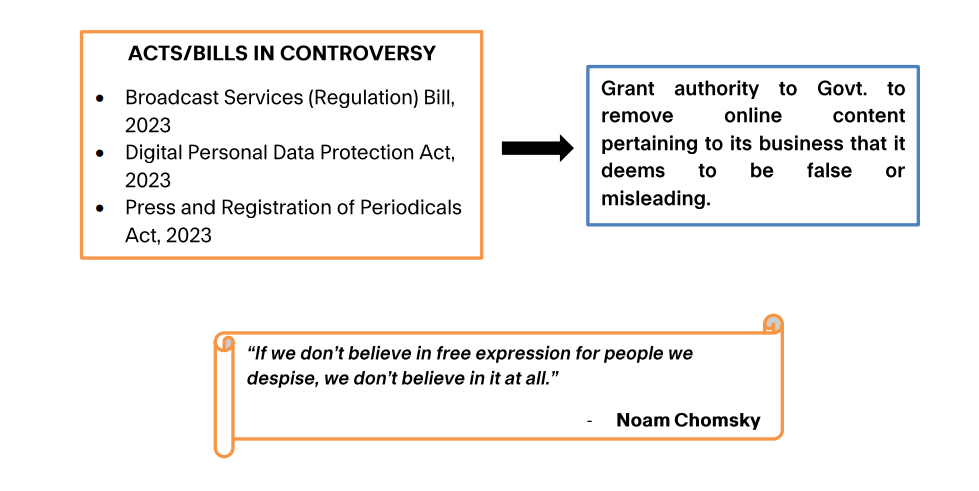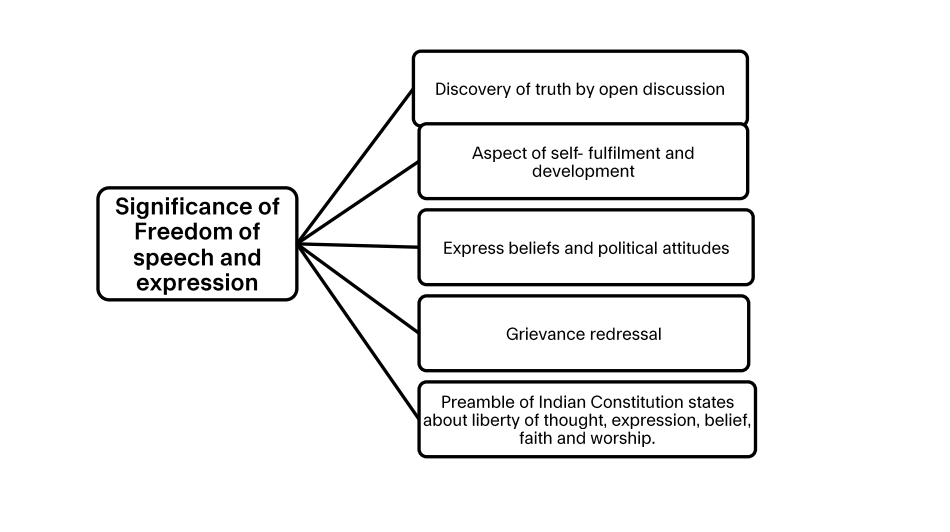
Right to Freedom of Speech and Expression and Recent Issues
In this article, we will discusses the issue of freedom and the right to freedom of speech and expression which is one of the fundamental rights enshrined in the Constitution of India in Part III and some of the issues arose in recent times. Recently, the issue of freedom and right to free speech was on news as the Lieutenant Governor of Delhi, V.K. Saxena has sanctioned the prosecution of noted Indian author Arundhati Roy and former Professor of the Central University of Kashmir Sheikh Showkat Hussain under Unlawful Activities Prevention Act, enacted in 1967 for their speeches they had made 14 years ago.
THE UNLAWFUL ACTIVITIES PREVENTION ACT, 1967
- The act aims at more effective prevention of certain unlawful activities of individuals and associations and for matters connected therewith.
- The act extends to the whole of India and every individual shall be liable to punishment under this act for every act or omission contrary to the provision thereof.
- The act defines ‘unlawful activity’ as any action taken by any individual or association committed by act, words, signs or by visible representation or otherwise which intends to disrupt the territorial integrity and sovereignty of India.
- It provides absolute power to the central government to deem an act as unlawful.
- It was designed to counterterror.
- It has death penalty and life imprisonment as the highest form of punishment.
DEBATEABLE ISSUES
- As these charges have been revived after a decade, it has attracted the views of critics arguing that this kind of issues dilute the image of Indian democracy before the world community.
- In relation to this context many Press organizations such as Press Club of India, Indian Journalist Union asserted that there are several laws through which the government can breach freedom of press.

DEMAND OF THE PRESS COMMUNITY
- The Press community has raised a demand that the Press Council of India should be replaced by a new Media Council to include broadcast and digital media.
- It will empower the Media Council to deal with challenges emanating from a changed media landscape.
FREEDOM OF SPEECH AND EXPRESSION (ARTICLE 19 (1) (A)
- Part of Fundamental rights enshrined in the Constitution of India in Part 3.
- It also includes right to not speak.
- One’s participation in sport which is expression of one’s self also forms a part of Freedom of Speech.
- Freedom of press is an integral part of freedom of speech.
- Through this, Right to access information makes the RTI (Right to Information) a fundamental right.
- The Supreme Court held that the Freedom of speech is inalienable right adjunct to right to life (art 21).
- It also includes right to communicate, print and advertising information.
- This right is backed by several international statutes, like –
- Universal Declaration of Human Rights
- International Covenant on civil and political rights
- European Convention on Human Rights and Fundamental Freedoms

The 2nd Chief Justice of India M. Patanjali Sashtri held that Freedom of speech and of press lay at the foundation of all democratic organizations. Without free political discussion, no public education, so essential for the proper functioning of the process of Government, is possible.
However, as we know that the fundamental rights enshrined in our constitution are not absolute and sacrosanct in nature, the article 19 (2) imposes some REASONABLE RESTRICTIONS on the enjoyment of Right to Freedom of Speech and Expression. The grounds on which reasonable restrictions are imposed are:
- To safeguard the Sovereignty and integrity of the country
- Security of the states
- Friendly relations with foreign countries
- Public order
- Decency or morality
- Defamation
- Incitement to an offence
The enjoyment of fundamental rights by individuals and reasonable restriction on its enjoyment both are important for the survival of Indian democracy and protecting the spirit of unity and integrity of Indian society.
You might also like:
